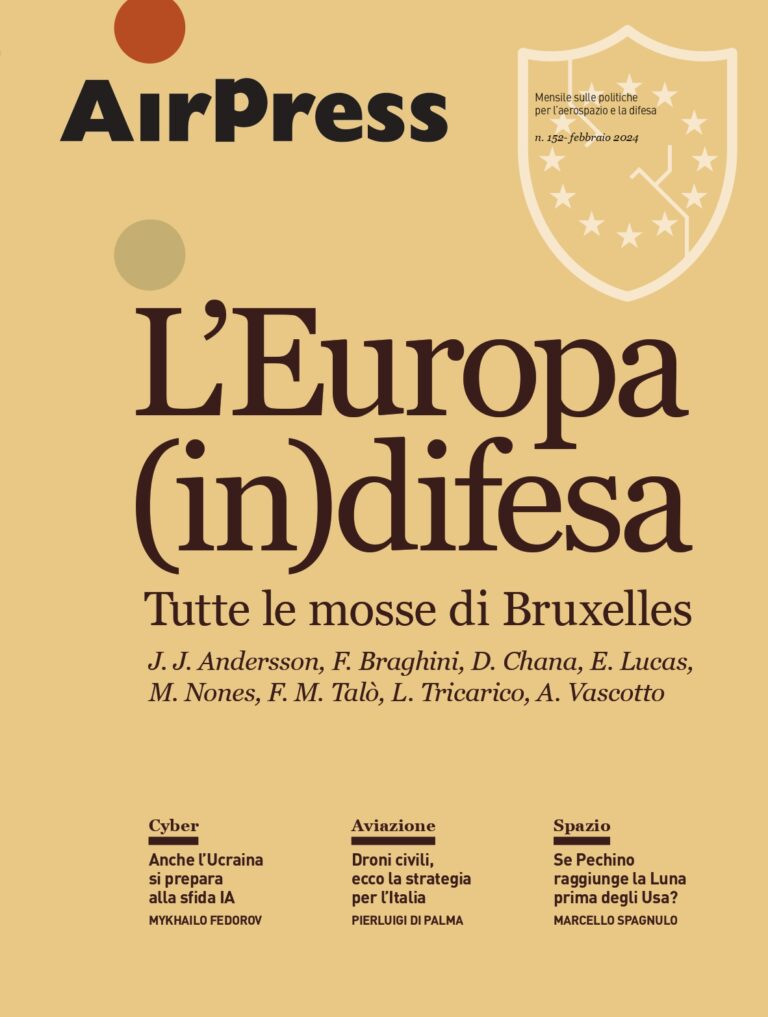Sembra che in un’intervista rilasciata all’agenzia spagnola EFE, il neo-Nobel per l’economia Oliver Hart abbia affermato che “l’euro è stato un errore” e che non sarebbe “particolarmente triste” se l’Europa abbandonasse la moneta unica.
Non è la prima volta che gli economisti americani (Hart è inglese di nascita, ma vive e insegna ad Harvard, prestigiosa Università privata di Cambridge, Massachusetts) criticano l’euro; anzi, salvo qualche rarissima eccezione (Bob Mundell, un altro Premio Nobel), sembra il loro hobby preferito. Sin dal lontano 1989, quando divenne un progetto concreto col Rapporto Delors e prese poi avvio col Vertice di Maastricht, ci ricordano che: “It can’t happen, it’s a bad idea, it won’t last”, secondo la celebre classificazione di Dornbush del 2001.
Il mantra è sempre il solito: i paesi aderenti all’euro non sono un’area monetaria ottimale, secondo nessuno dei criteri previsti nella letteratura. In Europa non c’è sufficiente mobilità del lavoro, i prezzi e i salari non sono abbastanza flessibili, i cicli economici non sono sincroni, le economie dei singoli paesi non sono sufficientemente legate in termini commerciali (!), etc.
Per la verità, la maggior parte delle critiche degli economisti americani insisteva sul fatto che non essendoci, come negli Usa, un’unione politica, non vi fossero meccanismi fiscali di riequilibrio di eventuali shock asimmetrici (come affermava in particolare Paul Krugman, altro Nobel per l’economia). Come dire: se manca un Tesoro federale, non si possono raccogliere e indirizzare le risorse verso un paese piuttosto che un altro, in caso di crisi. Giusto! Ma lo diceva nel 1993, prima che l’euro entrasse in vigore! Allora perché chiedere la scomparsa dell’euro piuttosto che la creazione di un Tesoro federale?
Eppure il Rapporto dei 4 Presidenti del dicembre 2012 e quello dei 5 Presidenti (Commissione Europea, Consiglio Europeo, Bce, Eurogruppo e Palamento Europeo) del giugno 2015 ha individuato una Roadmap per l’eurozona che prevede esattamente quale debba essere il cammino: unione bancaria (ormai quasi completata) per migliorare la resilienza al rischio di crisi finanziarie; unione fiscale, per raccogliere le risorse necessarie a finanziare la crescita, contrastando la concorrenza fiscale dei singoli Stati; unione economica, ossia creare un vero e proprio Tesoro Europeo, dotato di risorse proprie e di capacità di spesa autonoma rispetto agli Stati nazionali; e unione politica, per dare legittimità democratica alle scelte collettive e sovranazionali.
Senza procedere rapidamente verso queste tappe, difficilmente l’euro potrà sopravvivere: non c’era bisogno di un Nobel per saperlo. Ma il punto è agevolare questi passaggi, non darsi per vinti e tornare indietro a monete nazionali. Come completare il disegno originario di unione economica e monetaria per l’Europa? Come ridare coerenza ad un sistema economico con una politica monetaria unica e tante politiche economiche nazionali, ognuna in difesa dei propri (illusori) interessi? Come recuperare fiducia, aprendo prospettive di investimenti collettivi in ricerca, infrastrutture, energie rinnovabili, alta formazione (tutti settori nei quali la dimensione nazionale non è più sufficiente)?
Sono queste le domande che ci saremmo aspettati fossero affrontate da un vincitore del Premio alla memoria di Alfred Nobel; un discorso orientato al futuro, non al passato, pronto a rispedirci nel buio di economie e monete nazionali in conflitto perenne le une con le altre.
È vero: l’euro ha introdotto rigidità che costringono oggi più che mai a procedere oltre nel cammino per l’integrazione europea; il punto non è uscirne, rimettendo l’orologio della storia indietro di trent’anni, ma capire come andare avanti. La Bce ha fatto quello che poteva (e anche qualcosa in più) per salvare le economie europee in questi anni; adesso tocca ai governi.
Forse, in fondo, un euro forte in un sistema istituzionale forte fa paura agli Stati Uniti, ed anche alla Gran Bretagna, ormai in odore di Brexit… è la solita storia del divide et impera. E il bello è che gli europei rischiano di ricadere sempre nella trappola, abboccando all’amo.
(English version)
The Mistaken Syllogism
It seems that in a interview to the Spanish agency EFE, the new Nobel for economics Oliver Hart claimed that “the euro was a mistake” and that he would not be “particularly sad” if Europe were to abandon the single currency.
It is not the first time that US economists (Hart was born in England, but he lives and teaches at Harvard, the prestigious private University in Cambridge, Massachusetts) are critical towards the euro; actually, apart form very rare exceptions (Bob Mundell, another Nobel laureate), it seems their favorite hobby. Since 1989, when the euro became a concrete project, later implemented since the Maastricht Treaty, they remind us that: “It can’t happen, it’s a bad idea, it won’t last”, according to the famous classification made by Dornbush in 2001.
The story is still the same: the countries joining the single currency are not an optimum currency area, according to none of the criteria described in the economic literature. In Europe, there is not enough labour mobility, prices and wages are not flexible, economic cycles are unsynchronized, economies are not enough interdependent from the point of view of trade (!), etc.
To be frank, most of the critiques from American economists insisted on the fact that, lacking – as in the Usa – a political union, there were no fiscal mechanisms to adjust asymmetric shocks (as Krugman, another Nobel laureate, used to underline). It was like saying: if you do not have a Federal Treasury, you cannot collect and direct resources towards one or more countries, in case of crisis. Right! But Krugman claimed this in 1993, long before the euro was implemented! So why claim for the disruption of the euro, instead of demanding a federal Treasury?
The Report of the 4 Presidents in December 2012 and the Report of the 5 Presidents (European Commission, European Council, Ecb, Eurogroup, and European Parliament) in June 2015 have singled out a roadmap for the Eurozone which provides exactly the path to be taken: a banking union (almost completed) to increase the resiliency to risk of financial crises; fiscal union, to collect the resources necessary to finance growth, hindering any fiscal competition from each single national country; an economic union, i.e. to create a true European Treasury, endowed with own, autonomous resources and spending capacity; a political union, to give democratic legitimacy to collective and supranational choices.
Without pursuing quickly these steps, it will be hard for the euro to survive: we did not need a Nobel laureate to discover this. The question is how to ease these steps, without dreaming of coming back to national currencies. How to complete the original picture of economic and monetary union for Europe? How to provide a coherent framework to an economic system characterized by one single monetary policy and several autonomous budgetary policies, each devoted to national constituencies (without being able to satisfy their needs)? How to bring back trust, opening perspectives of collective investments in research, infrastructure, renewable energies, higher education (all sectors where the national dimension is inefficient)?
These are the questions we expect a Nobel laureate would answer; issues oriented towards the future, not towards the past, ready to bring us back into the doom continuous conflicts of national currencies and economies.
It is true that the euro imposed constraints on European economies that require further steps to be taken to strengthen the integration process; the problem is not how to get out of this, but try to understand how to go on. The Ecb has done what she could (even more) in order to save the European economies in the last few years; now it is time for governments to act.
Maybe, in the end, a strong euro within a strong institutional system is a threat to the United States, and even to the Brexiting UK… it is the same old story of divide et impera. We can only hope Europeans are not falling in this old trap.







